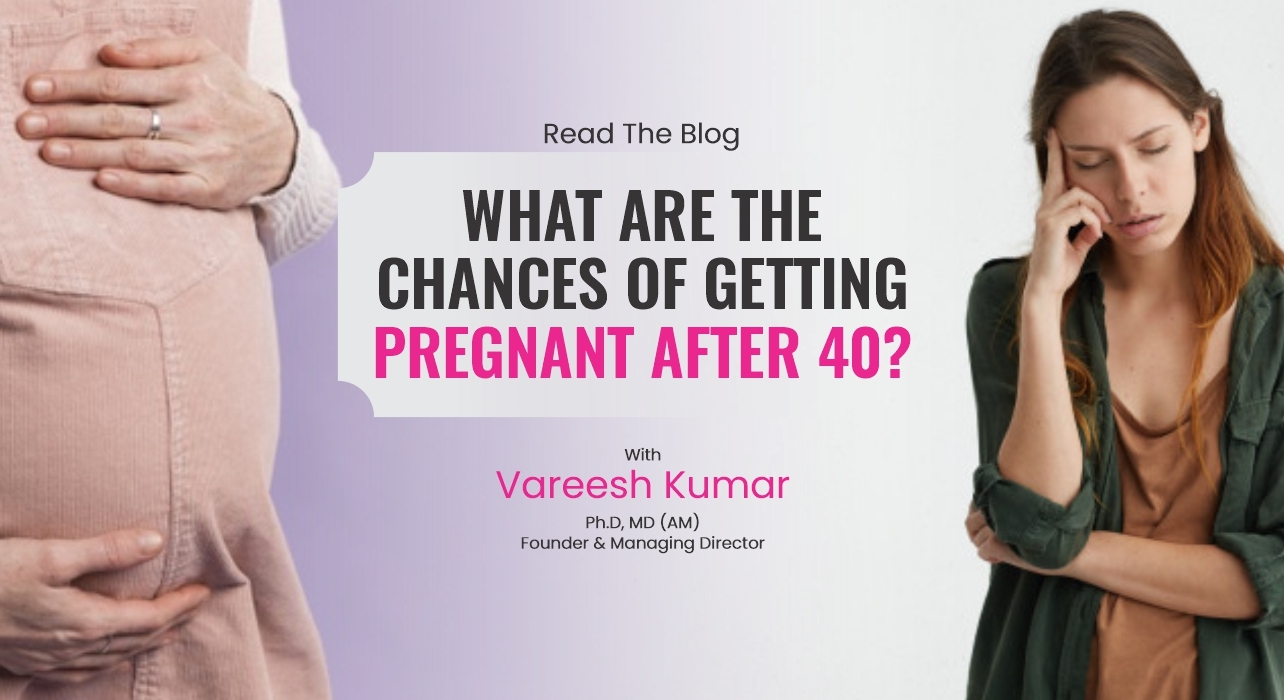Getting pregnant after the age of 40 has become an increasingly common happening. But according to the experts at the Centers for Disease Control and Prevention, 30% of females aged 40 to 44 will experience the symptoms of infertility.
Your chances of getting pregnant at any given time are also lower after the age of 40. A lady only has a 5% chance of pregnancy after she attains the age of 40. According to the internet, the most prominent method to have a pregnancy after 40 is to get back to your 20s, when females have the highest chance of getting pregnant. Compared to our 20s, when the chances of getting pregnant any given month is 20 to 25%, the chances of pregnancy after 40 reduce to 5%.
For ladies aged 45 to 49, the chances reduce to 1%. It is quite tough to have a pregnancy after 40 years but the birth rate among ladies aged 40 to 44 has improved. The pregnancy after 40 is still possible with some infertility treatment and medical intervention.
Common issues after the age of 40
1. Egg quality
The egg quality reduces after the age of 40, and some of the eggs released by the ovaries at this stage of life will have chromosomal abnormalities or implanted incorrectly in the uterus.
The egg-based decline is an important factor why private facilities such as developments in egg freezing and the utilization of donor eggs are becoming rapidly popular as processes for females struggling to get pregnant after 40.
2. Perimenopause and beyond
The mean age of menopause in the UK is nearly 51, but 45-55 is still considered the normal range of age. With the advancement in fertility technology, it is very easy to have a child after menopause, but this involves the utilization of previously frozen eggs or those of a younger donor.
3. Pregnancy problems
Aged females are more likely to get problems like blood pressure, gestational diabetes, and other complications during pregnancy, and these may be increased if donor eggs are utilized.
According to experts, in your 40s, you’ve got around 40-50% chance of miscarriage each time of pregnancy, and at 40, your chance of having a child with Down’s syndrome is about 1 in 100; at 45, 1 in 50. The complications are higher, but many females will go on to have a healthy pregnancy after 40.
Risks of pregnancy after 40 years
Due to advancements in technology regarding fertility, high-risk pregnancy, and delivery, it’s possible to get pregnant after 40 years. However, any pregnancy after 40 is considered a significant risk. Your IVF doctor will monitor you and your child closely for the following:
- High blood pressure — this may cause preeclampsia
- Gestational diabetes
- Birth defects, such as Down syndrome
- Low birth weight
- Ectopic pregnancy
- Miscarriage
How to conceive after the age of 40
At age 40, you have around a 5% chance of becoming a mother as a comparison with a female under 30 having 20% chance.
Regardless of the complications mentioned above, there are some smart ways you can take to enhance your fertility after 40.
Get preconception counseling
It is the best option for females of every age to discuss their pregnancy plan with their doctors or consultants in advance. Infertility treatment or some medications can be detrimental to a future pregnancy.
Also, getting information about your family history may identify some specific complications for a future offspring, and undergoing genetic testing or consulting a genetic counselor should be performed before you start trying to get pregnant.
Double down on healthy habits
Every egg does not have the same potential when you’re older, so that’s the time to have a nutritious diet and avoid intoxicants. Thirty minutes of regular exercise is required to maintain a healthy body that can enhance your chances of pregnancy.
Reduce stress wherever possible
At the age of 40, you know that biological changes occur very rapidly. It would help if you make sure you don’t increase your stress levels at this stage of life. Mind-body behavioral techniques such as yoga, meditation, and cognitive behavioral therapy can help you reduce your stress levels. Practitioners say these techniques can increase blood supply to the uterus and make hormones healthy, and physicians generally accept its relaxation advantages.
Assisted reproductive technology (ART)
This technology works by getting eggs out and fertilizing them in a testing lab before pushing them back into the body. ART may be a good option for females with ovulation complications, and it can also be a great option for surrogates. There’s an estimated 11% success rate in females aged 41 to 42.
Consult best IVF specialists at Vardaan hospital
Getting pregnant after age 40 can be a tougher task for some females than others. Your fertility specialist or doctor will need to provide you treatment quickly since your fertility rate decreases dramatically in your 40s.
Having pregnancy after 40 is much more common than it used to be, so if you’ve waited to have babies until now, you’ll have a lot of company. You should consult the IVF specialist at Vardaan Hospital, the best fertility centre, to know about all your individual complications before starting a family at this stage in your life.


